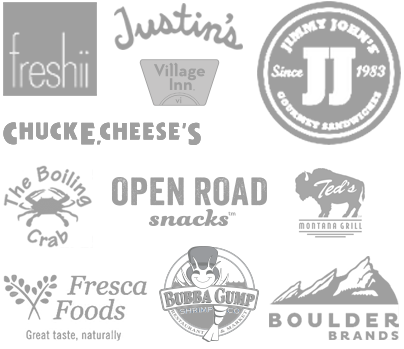Definitions of Egg Labels
With so many different egg labels in use today, egg buying can be a little confusing. What do the myriad of certifications, terms, and phrases mean? We’ve done some research and have the following terms defined for you:
Farm Fresh
As far as egg production is concerned, the term Farm Fresh means nothing. This term is not regulated, so any producer can put this on their label.
All Natural
This phrase also has no real meaning. Again, it is not regulated so can be used by any producer.
Cage Free
Although the term Cage Free is also unregulated, its meaning is literally in its name. The hens don’t live in cages. However, this does not mean they are outdoors. They usually live in aviaries, massive industrial barns that house thousands of birds, and living conditions can vary greatly. Compared to caged chickens, the cage free ones are able to walk around, perch, lay their eggs in a nest and spread their wings.
No Hormones
It’s illegal to give hormones to poultry in the U.S, so use of this term is unnecessary.
United Egg Producer Certified
A poorly understood certification discredited by the Humane Society. “This voluntary egg industry program permits cruel and inhumane caging and treatment. Hens are confined in barren, wire cages so small the birds can barely move. The guidelines recommend cage space less than the size of a piece of paper—just 67 square inches—for each bird.” If the carton doesn’t say Certified Humane, Free Farmed, Certified Organic, cage-free, or free-range, the eggs are almost certainly from hens confined in battery cages.
Free Range
Free-range means cage-free plus access to the outdoors. In many cases Free-range chickens are provided a few, small doors that lead to a screened-in porch with cement, dirt or a modicum of grass.
The majority of free-range birds in commercial egg facilities never actually go outside. So in most cases free-range means the same thing as cage-free. This term is not certified by the USDA so there is no way of knowing how long or if the hens actually go outside.
Vegetarian Diet
All hens are fed a vegetarian diet that contains no animal by-products. Chickens are actually omnivores so thought is a vegetarian diet may not be beneficial. However, many consumers prefer to know animal products are not used because the quality of animal products used in feed can vary greatly.
Omega 3
The hens are fed fish oil or flax seed in their diet to increase the amount of Omega-3’s in their eggs. This is not regulated, so the amount of omega-3’s can vary.
Organic
This is a very specific term. It means the hens are 1) not caged, 2) fed an organic diet, and 3) receive no antibiotics, hormones or GMO foods.
Pasture Raised
Pasture-raised birds spend most of their life outdoors, with a fair amount of space plus access to a barn. Many are able to eat a diet of worms, insects and grass, along with corn feed. Conditions can vary on with pasture-raised and some producers will include square footage per bird on the label.
Third-party Certifications
These are third-party auditing organizations that assess egg farms according to a robust set of animal welfare guidelines.
- Certified Humane: cage free but usually indoors, stocking density and space are regulated, no antibiotics or hormones, beak cutting is allowed
- Animal Welfare Approved: one of the highest animal welfare standards, limited to family farms, continual access to pasture, vegetarian fed, no antibiotics for egg-laying hens, beak cutting is not allowed
- Food Alliance Certified: caged free with specific requirements about space per bird, beak cutting is allowed
- American Humane Certified: allows birds to be caged or cage free, beak cutting is not allowed
Sources
- http://eggindustry.com/cfi/faq/
- http://www.npr.org/sections/thesalt/2014/12/23/370377902/farm-fresh-natural-eggs-not-always-what-they-re-cracked-up-to-be
- http://www.humanesociety.org/issues/confinement_farm/facts/guide_egg_labels.html?referrer=https://www.google.com/
- http://blogs.usda.gov/2012/04/06/eggstra-eggstra-learn-all-about-them/




